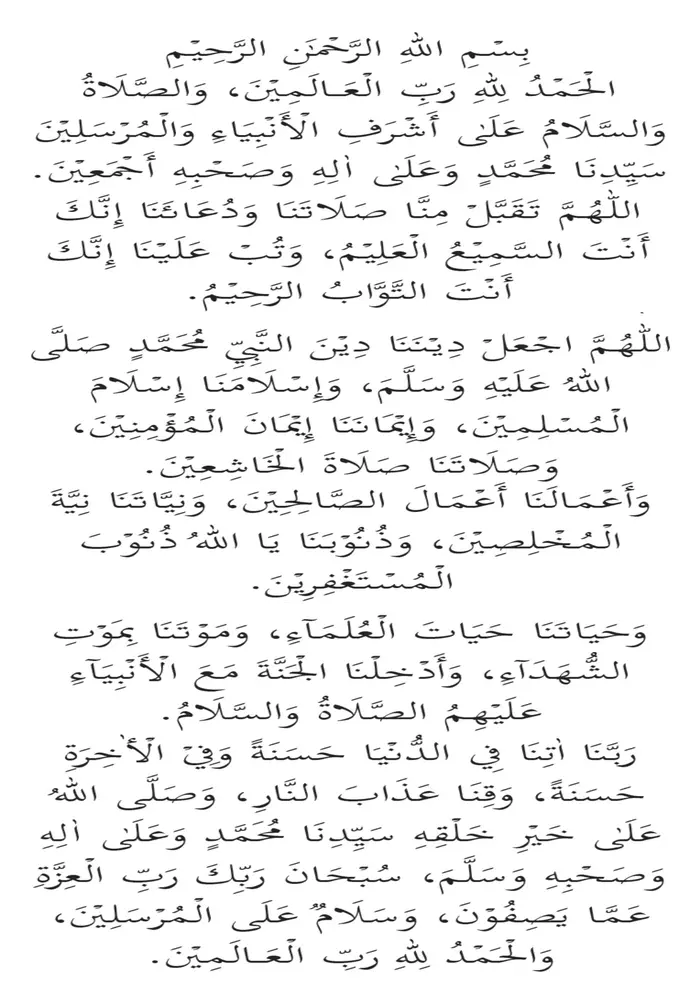Do you know the power of the supplications (doa) recited after your prayers (solat)? Far from being a mere formality, these post-prayer duas are a potent opportunity to connect directly with Allah SWT, expressing gratitude, seeking forgiveness, and making heartfelt requests. This post will explore the significance of doa selepas solat, offering insights into its spiritual benefits and providing examples of powerful supplications you can incorporate into your daily practice.
Doa Kesyukuran Ringkas Rumi Doa Selepas Solat Fardhu Panduan Bacaan
Following the obligatory prayers (solat fardhu), reciting a short prayer of gratitude (doa kesyukuran ringkas) is highly recommended. While there isn’t a single prescribed text, many Muslims utilize simple supplications thanking Allah SWT for His blessings and seeking continued guidance. A common practice involves expressing gratitude for the completion of the prayer and asking for forgiveness for any shortcomings. Numerous resources provide examples of these short, easy-to-remember prayers in Rumi (Romanized Malay script) for those seeking guidance on their pronunciation and recitation. These readily available guides offer a convenient way to incorporate this beneficial practice into your daily routine.

Photo credit: akumuslim.asia
www.babezdoor.com
Doa
Doa, meaning supplication or prayer, is a cornerstone of Islamic practice, and the moments immediately following the obligatory prayers (solat) are considered particularly potent times for making dua. These post-prayer supplications are deeply personal, allowing Muslims to express gratitude, seek forgiveness, request guidance, and intercede on behalf of loved ones. The sincerity and humility with which dua is offered are paramount, exceeding the mere recitation of memorized words. It’s a direct connection with Allah, a chance to pour out one’s heart and seek His blessings and mercy. This post will explore the significance of doa selepas solat, providing examples and guidance on how to best utilize this powerful opportunity.

Photo credit: 3.bp.blogspot.com
mraxzlan.blogspot.com
Doa Nabi Selepas Solat Contoh Doa Selepas Solat Yang Anda Boleh
This blog post explores the importance of *doa* (supplication) after prayer (solat) in Islam. One example of a supplication you can recite after completing your prayers is the *Doa Nabi* (Prophet’s supplication). While there isn’t one single, universally accepted “Doa Nabi selepas solat,” many Muslims utilize various supplications attributed to the Prophet Muhammad (peace be upon him). These often include expressions of gratitude to Allah, seeking His forgiveness, and asking for His blessings in this life and the hereafter. Finding and reciting these supplications, even short ones, strengthens your connection with Allah and completes the act of worship. Numerous resources, including books and websites, provide collections of these supplications, allowing you to choose those that resonate most with you.
www.babezdoor.com
Mustajab-doa: Doa Selepas Solat
Following every prayer (solat), Muslims have the opportunity to strengthen their connection with Allah through supplication, known as *doa*. The *doa selepas solat*, or post-prayer supplication, holds a special significance, often referred to as *Mustajab-doa*, meaning “answered prayer.” While all *doa* are heard by Allah, the period immediately after prayer is considered a particularly blessed time, increasing the likelihood of acceptance. This is because the heart is still focused on worship and the connection to the Divine is heightened, making it a potent time for sincere requests and expressions of gratitude. Many Muslims utilize this time to make personal requests, seek forgiveness, or offer thanks for blessings already received. The specific words used are not prescribed, but rather the sincerity and humility of the supplicant are key.

Photo credit: 2.bp.blogspot.com
mustajab-doa.blogspot.com
Doa Selepas Solat
The *doa selepas solat* (supplication after prayer) is a crucial yet often overlooked aspect of Islamic worship. More than just a concluding ritual, these supplications offer a profound opportunity for personal connection with Allah (SWT). Reciting specific *doa* is encouraged, but sincere supplications from the heart, expressing gratitude, seeking forgiveness, and making requests for oneself and others, are equally powerful. The tranquility following prayer creates a receptive space for these heartfelt pleas, making the *doa selepas solat* a deeply spiritual and rewarding practice for Muslims. Regularly incorporating these supplications strengthens one’s relationship with God and fosters a sense of peace and contentment.

Photo credit: nadz.my
nadz.my


